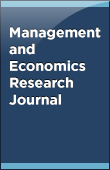


In the era of globalization and making headway in innovation, educational establishments and industries are confronting new difficulties as well as openings in the zone of transferring knowledge. The stipulation for students and lecturers has changed significantly and they anticipate becoming competent enough to use new technology for researching. With the growing pace of technology, the faculty, students, and managers are becoming more hi-tech-oriented as never before, which is resulting in more demand for research and training. Training will help the academia–industry to compete in the global environment as well as cater to international students and fulfill their needs too. However, to remain competent globally, knowledge transfer has become the need of the hour to disseminate knowledge and provide inputs to solve business problems. Knowledge transfer between educational institutions and industry is considered as an important driver of innovation and economic growth, as it eases the commercialization of new scientific knowledge within firms. Knowledge transfer denotes facilitating the sharing of the mentioned knowledge with one another. The paper will emphasize on a methodical literature review of the academia–industry interface in order to identify various factors contributing to their effectiveness. The primary data was collected through a questionnaire survey done on a sample of 100 employees working in various educational institutions and industries of Moradabad city, Uttar Pradesh, India and analyzed with the help of various statistical tools. The study also aims to identify the impact of key success factors on employee compliance with knowledge transfer. The researcher also evaluates the impact of employee compliance with knowledge transfer on organizational effectiveness. The contribution of this study will help both educational institutions and industry to better understand the knowledge transfer systems.
Read Article